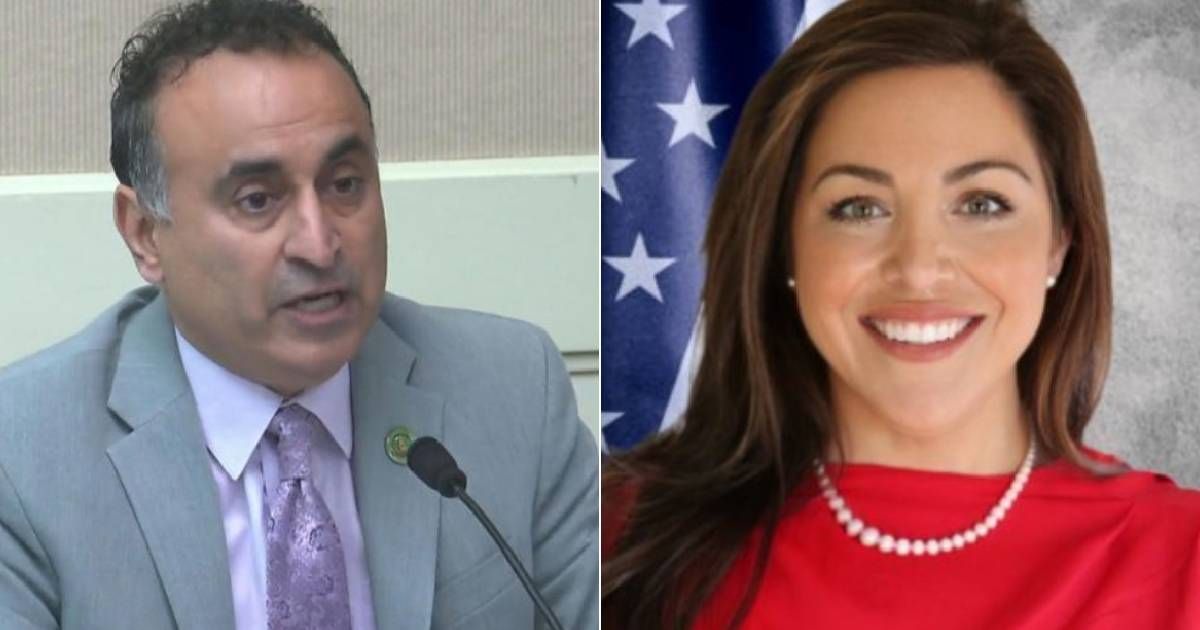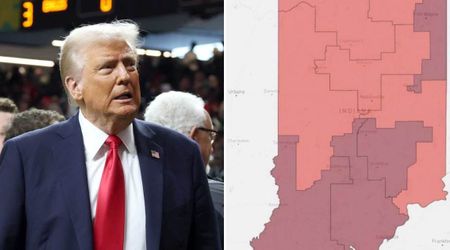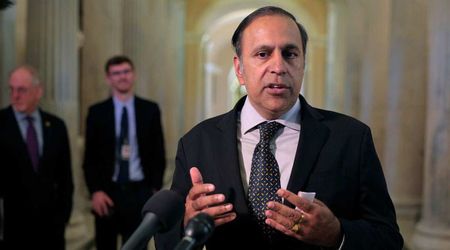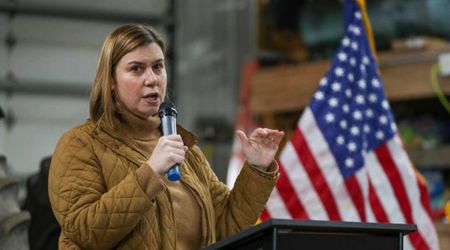'Actions are necessary': Dem lawmaker Ash Kalra gets emotional as Kate Sanchez argues against reparations for Asians and Latinos

NEW YORK CITY, NEW YORK: Earlier this month, a California assemblyman became emotional during a debate on reparations when his Republican colleague argued against requiring Asians and Latinos to contribute to compensation for descendants of African American slaves.
“I’m concerned about the proposal to help facilitate distribution of reparations,” during a hearing, Assemblywoman Kate Sanchez (R-Rancho Santa Margarita) spoke about a bill that aims to create a "Fund for Reparations and Reparative Justice" within the state Treasury Department.
Ash Kalra has criticized the state task force's proposed reparations
Sanchez mentioned that according to some economists, the reparations proposed by a state task force last year might exceed $800 billion, which is over 2.5 times the state's annual budget, New York Post reports.
“To pay for that, you’d need a major tax hike unlike anything this state has ever seen before,” she argued. “I recognize and acknowledge the painful part of our history, [but] the pains of our past should not be paid by the people of today.”

Sanchez, who is Hispanic, pointed out that more than half of California's population consists of Latino and Asian communities, which were not implicated in slavery, discrimination, or Jim Crow laws.
“It is fundamentally unfair to force these people to pay for this,” she said in opposing SB 1331.
In response to Sanchez, Assemblyman Ash Kalra (D-San Jose) stated that "actions are necessary, and that includes reparations."
“It includes, in some cases, monetary reparations,” he asserted.

“I understand that it’s hard to ask those of us currently sitting in the legislature to make those commitments, but no one asked black families over generations, if it was OK to take their wealth, if it was OK to enslave them, it was OK to …,” Kalra spoke, his voice breaking with emotion, and then he paused to regain his composure.
“If it was OK to put their children in generations of poverty,” he continued. “This country became a superpower based upon free labor of African descendants over hundreds of years. We need to recognize it.”
Steven Bradford argued that reparations could be free college tuition
As the first Indian American to hold a seat in the California Legislature, Kalra stated that the state continues to gain from "what happened to our brothers and sisters in the Black community over so many generations" even "to this day."
SB 1331 received approval through a vote by the Assembly Judiciary Committee. According to the Sacramento Observer, the California Legislature has reviewed four bills related to reparations in committee and opted to advance them.

The California Legislative Black Caucus has introduced fourteen reparations bills this year. However, SB 1331 is not among the bills proposed by the CLBC, as reported by the media.
State Senator Steven Bradford (D), the author of SB 1331, argues that reparations could take the form of free college tuition, healthcare benefits, and assistance for first-time homebuyers who are descendants of enslaved individuals, rather than direct monetary payments.
Public reaction to reparations debate sparks controversy
As soon as the news surfaced on the internet, users started reacting to it. One wrote, "That’s a total scam and against our laws."
Another user added, "Also forcing Whites to pay for reparations in California is fundamentally unfair. Accountability is solvable only on an individual basis. All of us alive today have never been a slave nor owned a slave. Attempting to redress sins in the past will add new sins in the present."
Also forcing Whites to pay for reparations in California is fundamentally unfair. Accountability is solvable only on an individual basis. All of us alive today have never been a slave nor owned a slave. Attempting to redress sins in the past will add new sins in the present
— Tim Cutler (@TimCutler639811) June 22, 2024
A commentator wrote, "Reparations are absurd."
"No one should be paying 'reparations' to anyone," a person wrote in the comments section.
This article contains remarks made on the Internet by individual people and organizations. MEAWW cannot confirm them independently and does not support claims or opinions being made online.










